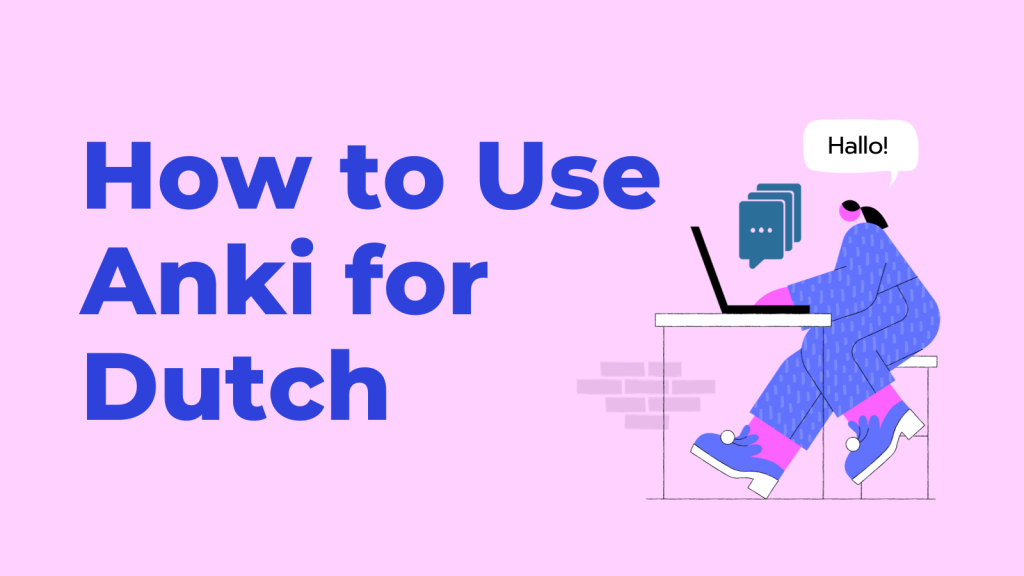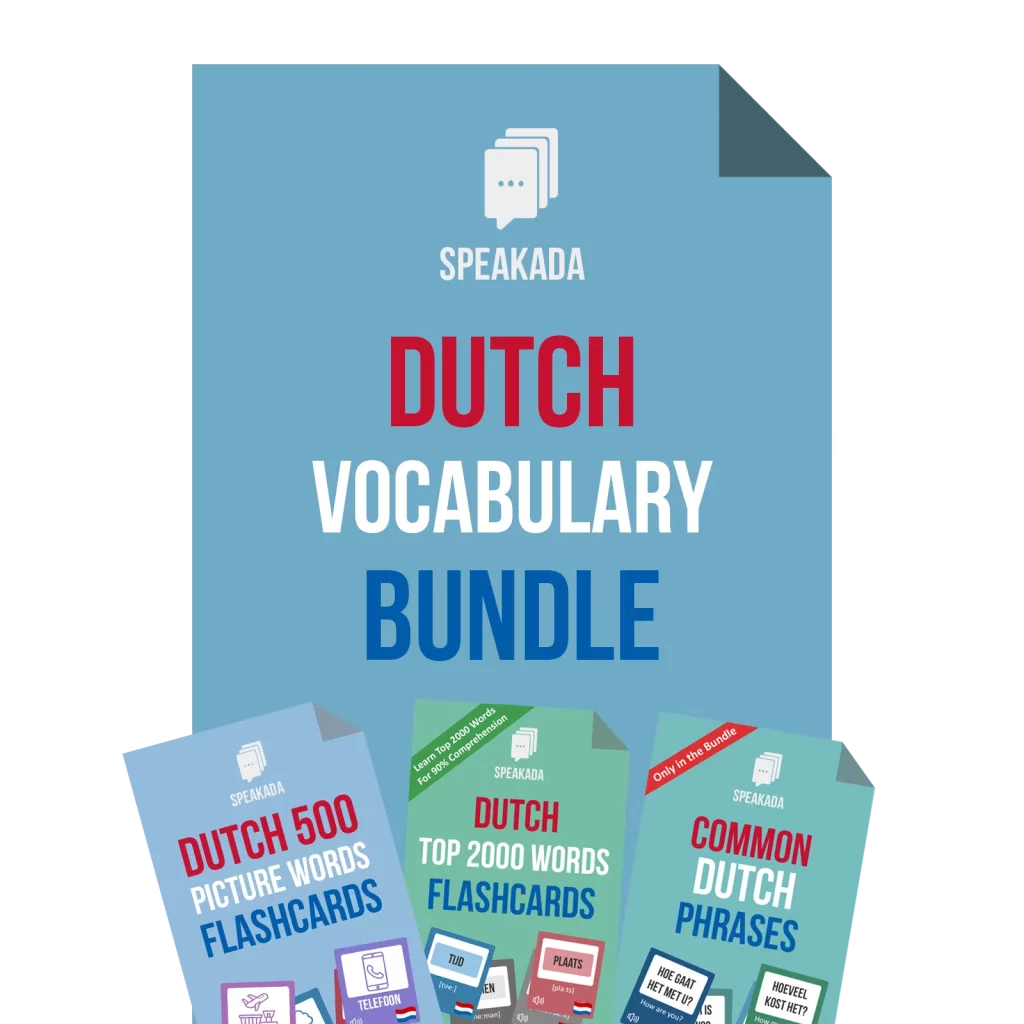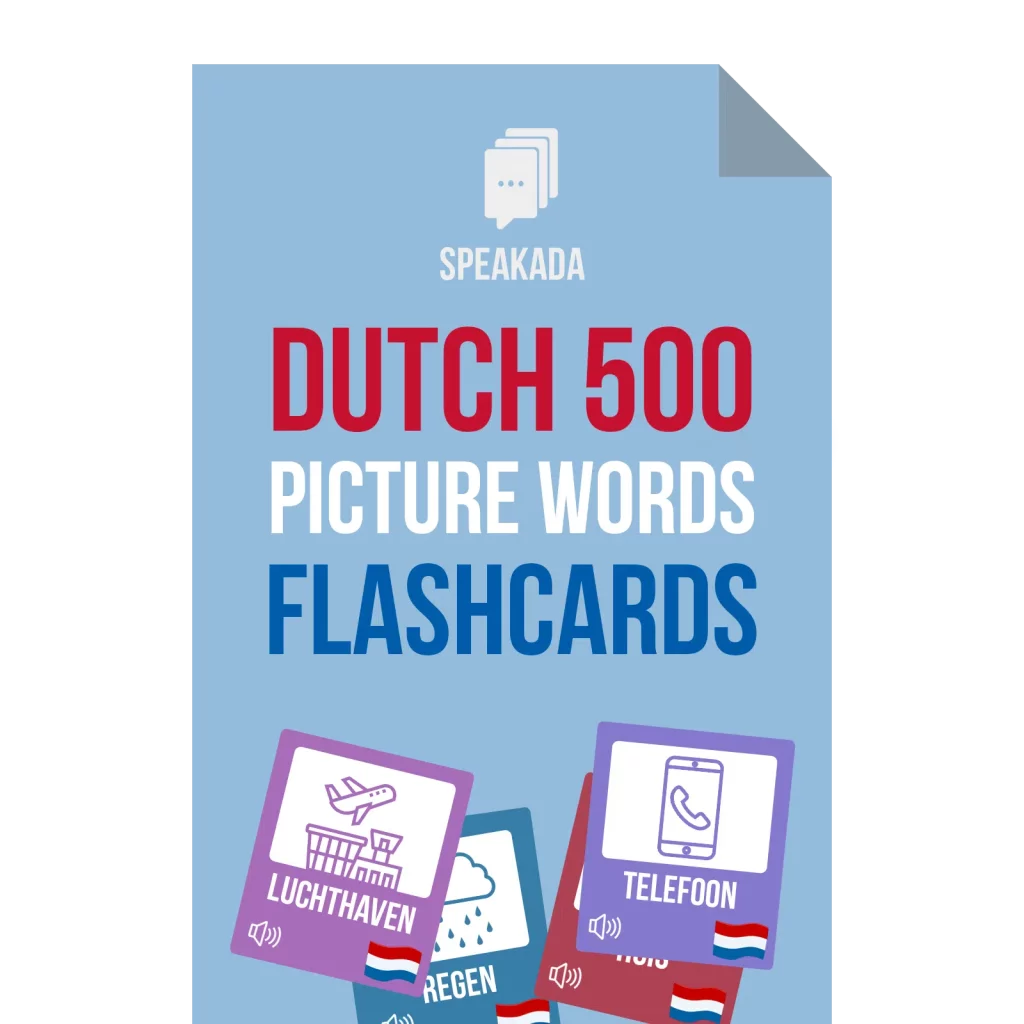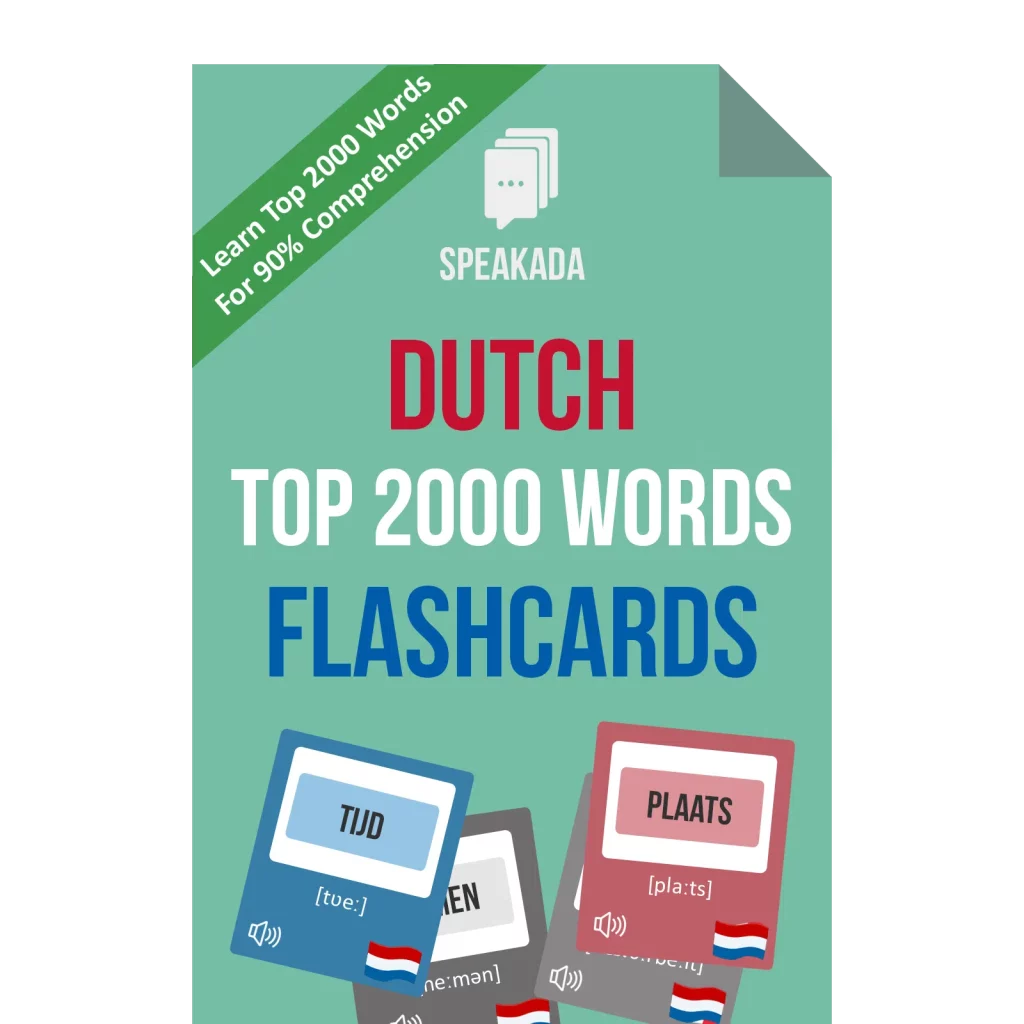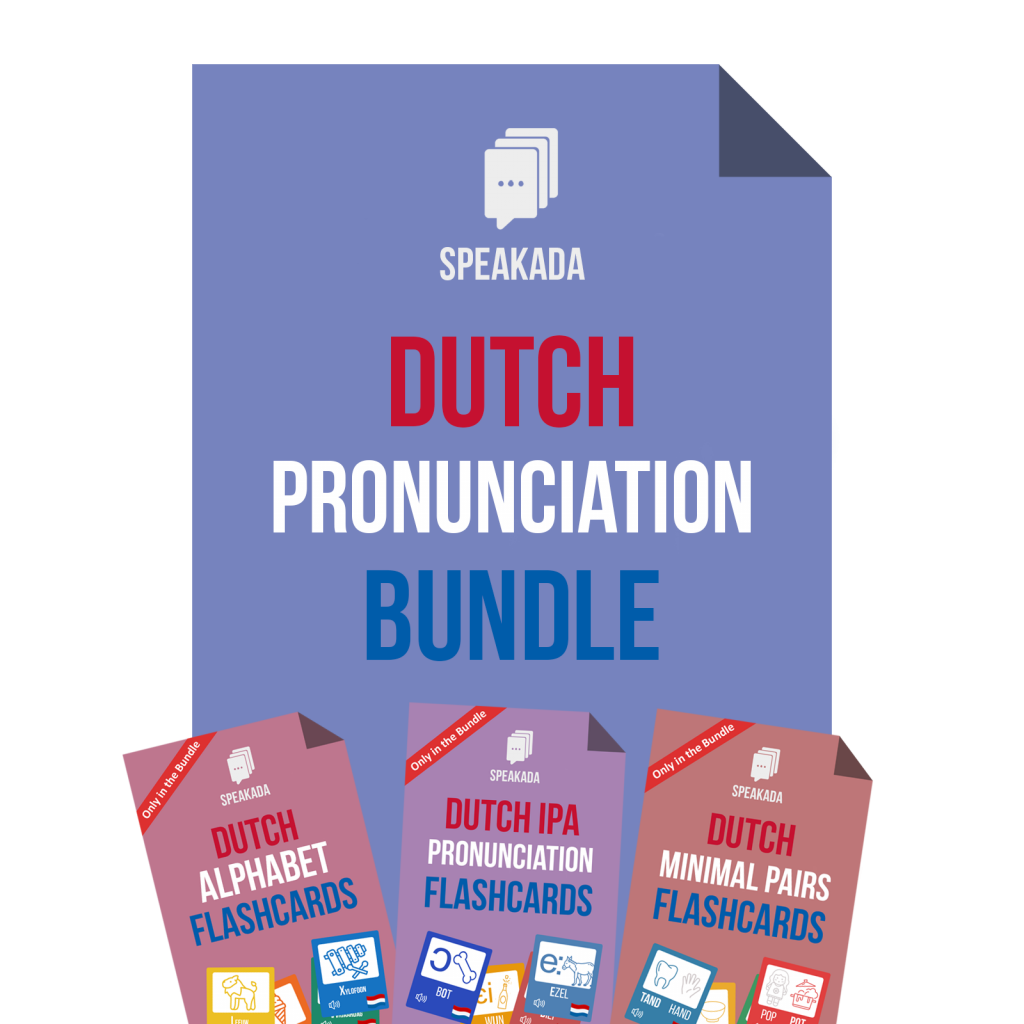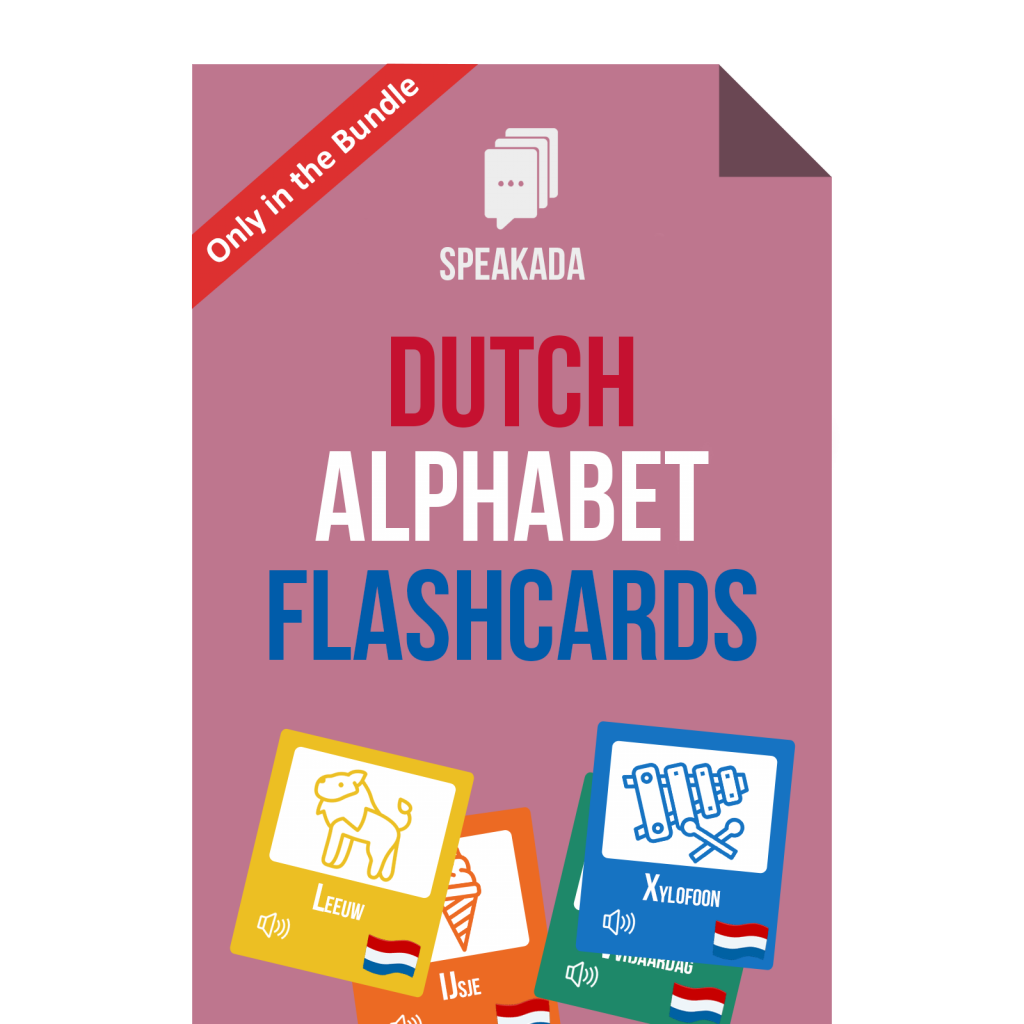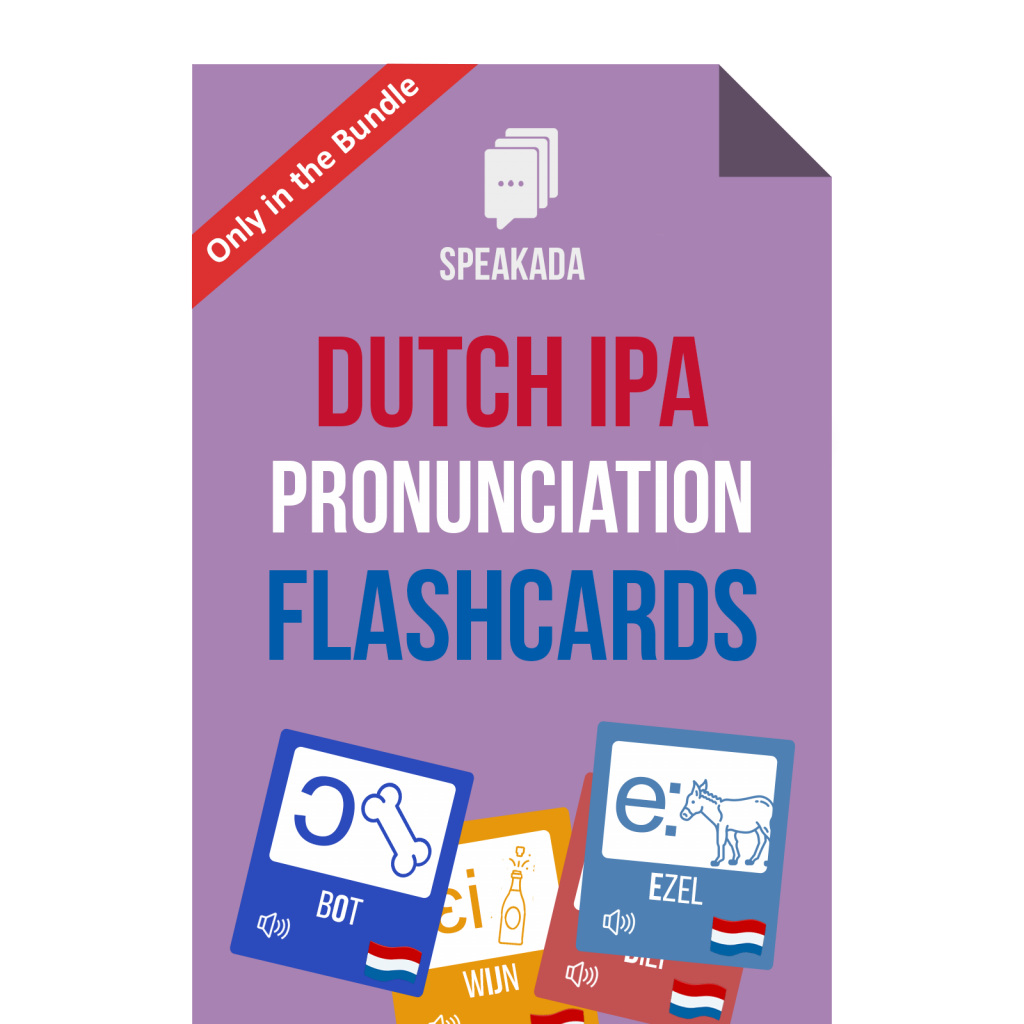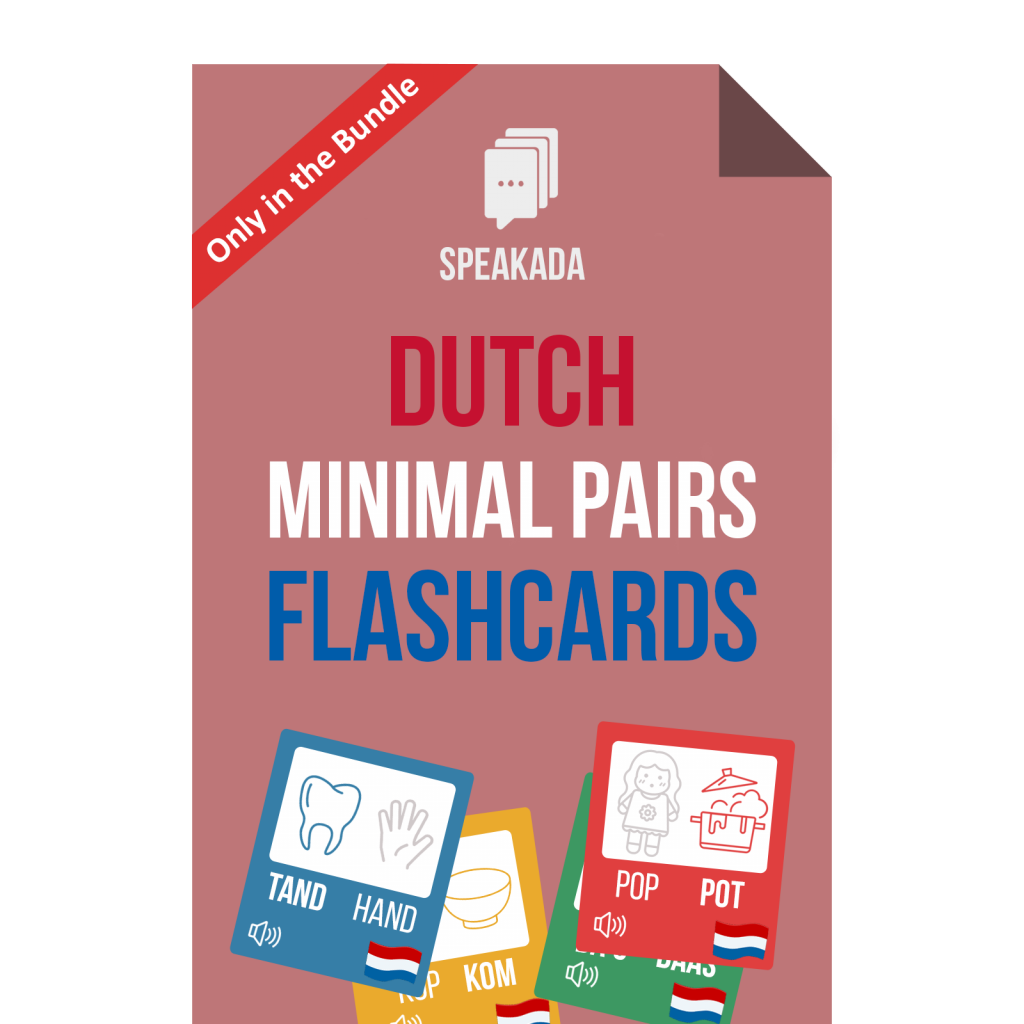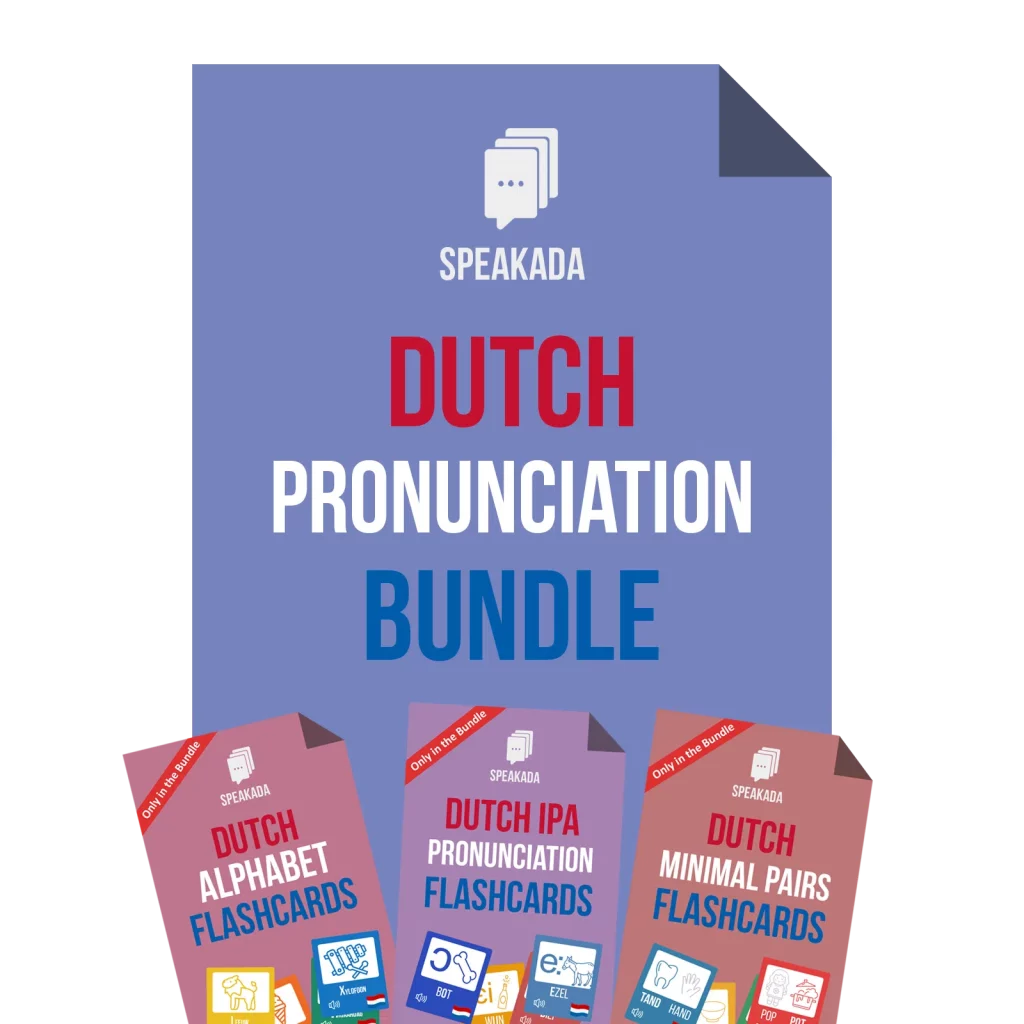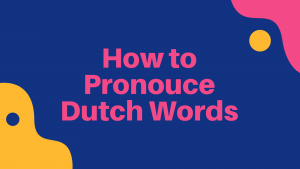Anki is a highly effective tool for learning a new language, and it is often used by students as a digital platform for creating and studying Dutch flashcards. But how to use Anki for Dutch fluency?
While flashcards may not be the primary method of choice for every language learner, their effectiveness for memorizing difficult words and vocabulary cannot be denied. They are also an excellent way to establish a consistent learning routine and set achievable goals.
Although Anki may seem complicated at first, it is actually quite intuitive once you have a good understanding of the basics. In this article, we’ll go through the basics to learn how to use Anki for Dutch.
Table of Contents
Benefits of Using Digital Dutch Flashcards
Flashcards are a highly effective tool for learning a new language, and they continue to be a popular choice among Dutch learners.
While paper flashcards have been used for years, digital flashcards offer a number of additional benefits, such as the ability to include pictures, audio, example phrases, and other interactive features.
By using a tool like Anki, you can easily access your Dutch flashcards on your phone, making them more convenient and portable.
In addition to the convenience and interactivity of digital flashcards, using Anki to study Dutch can also be easily integrated into your language learning routine.
Flashcards are an excellent way to learn how to use Anki for Dutch through actively recalling information and committing it to memory efficiently. It is a tried-and-true method that can be a valuable addition to your Dutch learning strategy.
What is Anki and how does it help you learn Dutch?
Many language learners wonder how to use Anki for Dutch, as it’s a popular tool for improving vocabulary and retention. Anki is a popular flashcard-based learning app and software that can be used to learn a variety of subjects, including learning a new language like Dutch. Anki allows users to create and study from digital flashcards that contain information that they want to learn, such as vocabulary words, grammar rules, and other language-specific content.
Anki uses a spaced repetition algorithm to present digital flashcards to the user at regular intervals, with the frequency of review increasing as the user demonstrates mastery of the Dutch material. Understanding the spaced repetition algorithm is crucial when learning how to use Anki for Dutch, as it optimizes memory retention.
Anki can be used to help language learners memorize new vocabulary, practice grammar concepts, and improve their overall comprehension and speaking skills in Dutch. The app is available for various platforms, including desktop computers, mobile devices, and web browsers, making it convenient and accessible for language learners.
Anki can be a very helpful tool for learning Dutch for a number of reasons. Here are some ways in which Anki can support your Dutch journey:
1. Vocabulary acquisition
Anki opens up a world of possibilities for expanding your Dutch vocabulary. With this versatile tool, you can craft dynamic flashcards featuring Dutch words, their English translations, illustrative example sentences, accompanying audio clips, and even visual aids like images.
This comprehensive approach to vocabulary acquisition not only enhances your ability to remember new words but also deepens your comprehension by providing context and pronunciation practice.
Regularly revisiting these flashcards strengthens your word retention, ensuring that your Dutch vocabulary grows and sticks in your memory, helping you communicate more effectively and understand the language more comprehensively.
2. Grammar practice
Anki proves to be an excellent companion for mastering Dutch grammar, too.
You can create targeted flashcards with sentences and phrases in Dutch that emphasize specific grammar rules. These flashcards can help you practice everything from verb conjugation to subject-verb agreement and more intricate grammar concepts.
3. Pronunciation and speaking skills
Anki is an invaluable tool for improving your Dutch pronunciation and speaking skills. With the ability to integrate audio into your flashcards, you can listen to and mimic native Dutch pronunciation, aiding in accent reduction and fluency.
You can also practice shadowing and self-assessment, comparing your pronunciation to native speakers. Anki’s flexibility extends to recording your own voice for real-time improvement and creating speaking prompts that encourage thinking and responding in Dutch.
Regular use of Anki in this regard enhances your conversational abilities and boosts confidence.
4. Customization and flexibility
Anki is a highly customizable and flexible tool that allows you to tailor your learning experience to your specific needs and goals.
You can create and organize flashcards based on your personal learning style, and you can access the app on a variety of platforms and devices, making it convenient to study whenever and wherever you have time.
Overall, Anki can be a very useful tool for learning Dutch and improving your language skills. By creating and reviewing flashcards on a regular basis, you can acquire new vocabulary, practice grammar concepts, and improve your pronunciation and speaking skills in Dutch.
How to Use Anki for Dutch
1. Install Anki
To install Anki on a desktop or laptop computer, you will need to follow these steps:
- Go to the Anki website (https://apps.ankiweb.net/) and click on the “Download” button.
- Select the appropriate version of Anki for your operating system (e.g. Windows, Mac, Linux).
- Once the download is complete, open the downloaded file to begin the installation process.
- Follow the on-screen instructions to complete the installation. This may involve clicking “Next” or “Install” a few times, and agreeing to the terms and conditions.
- Once the installation is complete, you will be taken to the main Anki screen where you can start creating and studying flashcards.
To install Anki on a mobile Android or iOS device, you will need to follow these steps:
- Download & Install AnkiDroid or AnkiMobile:
- For Android devices, download AnkiDroid from the Google Play Store.
- For iOS devices, get AnkiMobile from the App Store.
- Alternatively, access both apps from the official Anki website at https://apps.ankiweb.net/.
- Launch AnkiDroid or AnkiMobile:
- After the download is complete, open the AnkiDroid or AnkiMobile app.
- Main Anki Screen:
- You’ll arrive at the main Anki screen, where you can view, create, and review your flashcards.
2. Create your flashcards
Once you have Anki installed, you can begin creating your Dutch flashcards. Creating flashcards is the first step in understanding how to use Anki for Dutch effectively. You have 2 options: (1) you can make your own Anki flashcards, or (2) you can use pre-made Anki decks that save you time.
1) Making your own Anki flashcards
To create your own decks in Anki, you will need to follow these steps:
- Open Anki and click on the “Create Deck” button.
- Enter the name that you want for your new deck.
- Click “OK”.
- Now you can add new flashcards to that deck.
To add new cards to your deck in Anki, click on the “Add” button.
This will bring up a new card creation window. From here, you can enter details for the front and back of the card, as well as any additional information or media that you want to include.
Once you are finished, click on the “Add” button to save the card to your deck. This button may be shown as a check mark on mobile devices.
Once you have created your flashcard, it will be added to your deck and will be available for review when you study.
Here is a very basic example of the content you can add to an Anki flashcard to learn the Dutch word for “mother”:
Front: moeder
Back: mother
2) Using Pre-Made Dutch Anki Decks
To import a pre-made deck into Anki, you will need to follow these steps:
- Download the deck file you want to import. Make sure it is in the .apkg file format.
- Open Anki. Then, find and click the “Import” button.
- Navigate to the location of the deck file you downloaded and select it.
- Click “Open” to import the deck into Anki.
- The imported deck will now be added to your collection of decks in Anki.
Keep in mind that you should only import decks from trusted sources, as importing decks from untrusted sources may result in errors or cause problems with your Anki app or software.
Our team at Speakada have produced effective ready-to-use Anki decks for learning Dutch. If you want to save time and effort, then consider our Speakada Dutch Anki decks so that you can get started studying right away. Learn more about our Dutch Anki decks to help you with Dutch Pronunciation and Dutch Vocabulary.
3. Review and study your Anki Dutch flashcards
The key to effectively using Anki for language learning is to review your flashcards regularly. Anki uses a spaced repetition algorithm to present your flashcards to you at intervals that become increasingly longer as you demonstrate mastery of the material.
To review and study Dutch flashcards on Anki, follow these steps:
- Open the Anki app on your device and select the deck you want to review.
- The app will show you a card with a question or prompt on one side.
- Answer the question in your head or out loud.
- Select “Show Answer” in the Anki app to see the answer on the other side of the card.
- Use the buttons at the bottom of the screen to rate your response: if you got the answer correct, press “Good”; if you got it wrong, press “Again”; if you took a long time to answer correctly, press “Hard”; if you quickly knew the answer, press “Easy”.
- Continue reviewing cards until you have completed the deck or reached your desired review time.
By rating your familiarity with each flashcard as you review it, you can help Anki to adjust the spacing of your reviews and present the material to you at appropriate intervals. This can help to improve your retention of new vocabulary, pronunciation skills and grammar concepts and make your language learning more efficient.
In conclusion, there are three core steps to learning how to use Anki for Dutch. Anki is a powerful tool for learning Dutch. With its powerful spaced repetition algorithm and customizable features, it is an excellent choice for creating digital flashcards to aid in your language learning journey. By following the steps outlined in this article on how to use Anki for Dutch, you can effectively use Anki to enhance your Dutch learning and achieve your language learning goals.
You May Also Like
More Anki Dutch Articles

Best Dutch Anki Decks 2024 That You Need Now

How to Learn Dutch Vocabulary

How to Use Anki for Dutch

Mastering Dutch Made Easy: Step-By-Step Guide for How to Learn Dutch Now

How Long Does It Take to Learn Dutch Now

